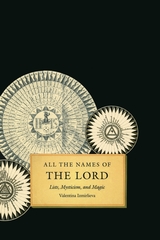
This unexpected juxtaposition of a theological treatise and a magical amulet allows Izmirlieva to reveal lists’ rhetorical potential to create order and to function as both tools of knowledge and of power. Despite the two different visions of order represented by each list, Izmirlieva finds that their uses in Christian practice point to a complementary relationship between the existential need for God’s protection and the metaphysical desire to submit to his infinite majesty—a compelling claim sure to provoke discussion among scholars in many fields.
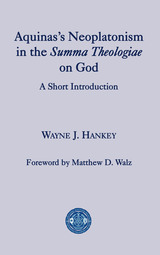

Beyond Compare is a remarkable work that offers a commentary on spiritual learning for the twenty-first century rooted in two classic texts from the Hindu and Christian traditions: the Essence of the Three Auspicious Mysteries by Śrī Vedānta Deśika and Treatise on the Love of God by St. Francis de Sales.
In his commentary, Clooney achieves multiple goals—the book is a contribution to Christian spiritual theology, highlighting for today the beautiful insights into love by St. Francis de Sales (1567-1623), Doctor of the Church. At the same time it points out how even in our world of many religious paths, we can recover and deepen the ancient tradition of loving surrender into God's hands by opening ourselves to the wisdom of India and one of Hindu India's most famous traditions of loving God, explained to us by the south Indian Hindu theologian Śrī Vedānta Deśika (1268-1369). Clooney goes further, offering a comparative study of these classic works in which he self-consciously writes about the process of reading the two works and the impact this approach has on the reader. The good advice found through this deep engagement with these texts offers a deeper insight into how we can most fruitfully and spiritually think about religious pluralism in the 21st century, remaining open in heart and mind while loyal still to our own tradition.
Not merely a book about loving surrender to God, Beyond Compare offers us the opportunity to advance along that path ourselves, learning from the wisdom of St. Francis de Sales and Śrī Vedānta Deśika, meditating on their two paths together, deepening our own love and willingness to surrender in love to God.

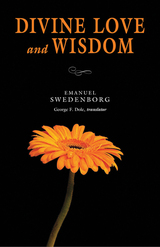
Divine Love and Wisdom has been called the most profound work of the Enlightenment scientist and seer Emanuel Swedenborg. It demonstrates how God’s love, wisdom, and humanity are reflected in creation and in ourselves, and suggests that the act of Creation is not a mystery of the past, but a miracle ongoing in every instant of the present. Like a blueprint of things unseen, Divine Love and Wisdom makes visible the hidden design of the universe, as well as the qualities of its Architect. Its vivid depiction of the spiritual mechanism of the world has impressed thinkers such as William Blake, Samuel Taylor Coleridge, Ralph Waldo Emerson, and Henry James, Sr.
The New Century Edition of the Works of Emanuel Swedenborg is a modern-language, scholarly translation of Swedenborg’s theological works. The series’ easy-to-read style retains the dignity, variety, clarity, and gender-inclusive language of Swedenborg’s original Latin, bringing his thought to life.
This portable edition contains the text of the New Century Edition translation, but not the introduction, annotations, or other supplementary materials found in the deluxe edition.
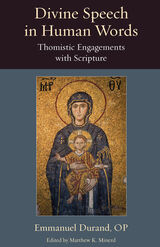
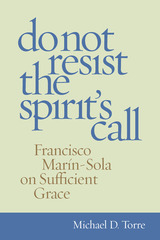

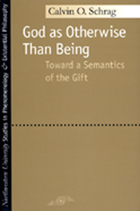
Schrag draws with grace, ease, and precision upon the history of Western metaphysics, from Plato and Aristotle through Nietzsche and Heidegger. Most important to his central question of God as "otherwise than Being," however, are such influential post-Heideggerian thinkers as Jean-Luc Marion, Jacques Derrida, and Emmanuel Levinas. Schrag's inquiry engages these thinkers at a serious level and also expands recent discussions by relating them to the work of figures hitherto overlooked or underplayed, most notably Paul Tillich.
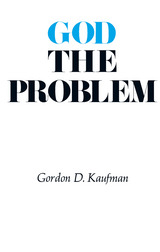
The most discussed and most significant issue on the religious scene today is whether it is possible, or even desirable, to believe in God. Mr. Kaufman's valuable study does not offer a doctrine of God, but instead explores why God is a problem for many moderns, the dimensions of that problem, and the inner logic of the notion of God as it has developed in Western culture.
His object is to determine the function or significance of talk about God: how the concept of God is generated in human experience; the special problems in turn generated by this concept (for example, the intelligibility of the idea of transcendence, the problem of theodicy) and how they are met; and under what circumstances the idea of God is credible or important or even indispensable. He does not try to prove God's existence or nonexistence, but elucidates what the concept of God means and the important human needs it fulfills.
Four of the eleven essays have been previously published, at least in part; seven are completely new.
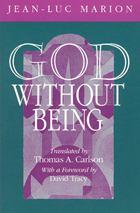
This volume, the first translation into English of the work of this leading Catholic philosopher, offers a contemporary perspective on the nature of God.
"An immensely thoughtful book. . . . It promises a rich harvest. Marion's highly original treatment of the idol and the icon, the Eucharist, boredom and vanity, conversion and prayer takes theological and philosophical discussions to a new level."—Norman Wirzba, Christian Century
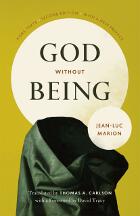
Jean-Luc Marion is one of the world’s foremost philosophers of religion as well as one of the leading Catholic thinkers of modern times. In God Without Being, Marion challenges a fundamental premise of traditional philosophy, theology, and metaphysics: that God, before all else, must be. Taking a characteristically postmodern stance and engaging in passionate dialogue with Heidegger, he locates a “God without Being” in the realm of agape, or Christian charity and love. If God is love, Marion contends, then God loves before he actually is.
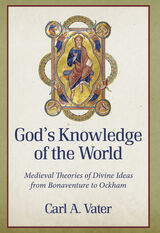

Catholic philosopher Adrian Reimers takes on these challenges in Hell and the Mercy of God, drawing on relevant sources from Aristotle to Aquinas, from Dante to Tolkien, from Wagner to John Paul II, along with Billie Holliday, The Godfather, and the music of George Gershwin. He presents a philosophical theology, grounded in Scripture, of the nature of goodness and evil, exploring various types of pain, the seven capital sins, the resurrection of the body, the meaning of mammon, the core meaning of idolatry, the psychology of Satan and those who choose his path, and the moral responsibility of the human person.
These reflections illuminate the intelligibility of orthodox Catholic teachings on the goodness of God and the reality of hell. Hell is not an arbitrary imposition set up for human rule-breakers but a continuation of a freely chosen way of life manifest even in this world. Examples from history, art, and contemporary culture lead the author to conclude that anyone who does not believe in the reality of hell is not paying enough attention. And yet, mercy and hope remain triumphant, because, just as Christ offers entrance into paradise to the “good thief” Dismas on the cross, God continues to offer repentance and salvation to all who live.
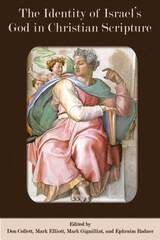
A broad, sweeping volume that breaches the walls separating biblical and theological disciplines
Biblical scholars and theologians engage an important question: Who is Israel’s God for Christian readers of the Old Testament? For Christians, Scripture is the Old and New Testament bound together in a single legacy. Contributors approach the question from multiple disciplinary vantage points. Essays on both Testaments focus on figural exegesis, critical exegesis, and the value of diachronic understandings of the Old Testament’s compositional history for the sake of a richer synchronic reading. This collection is offered in celebration of the life and work of Christopher R. Seitz. His rich and wide-ranging scholarly efforts have provided scholars and students alike a treasure trove of resources related to this critical question.
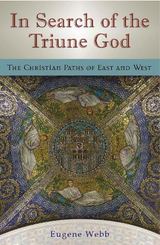
Under the broad umbrella of the Christian religion, there exists a great divide between two fundamentally different ways of thinking about key aspects of the Christian faith. Eugene Webb explores the sources of that divide, looking at how the Eastern and Western Christian worlds drifted apart due both to the different ways they interpreted their symbols and to the different roles political power played in their histories. Previous studies have focused on historical events or on the history of theological ideas. In Search of the Triune God delves deeper by exploring how the Christian East and the Christian West have conceived the relation between symbol and experience.
Webb demonstrates that whereas for Western Christianity discussion of the doctrine of the Trinity has tended toward speculation about the internal structure of the Godhead, in the Eastern tradition the symbolism of the Triune God has always been closely connected to religious experience. In their approaches to theology, Western Christianity has tended toward a speculative theology, and Eastern Christianity toward a mystical theology.
This difference of focus has led to a large range of fundamental differences in many areas not only of theology but also of religious life. Webb traces the history of the pertinent symbols (God as Father, Son of God, Spirit of God, Messiah, King, etc.) from the Hebrew Bible and New Testament through patristic thinkers and the councils that eventually defined orthodoxy. In addition, he shows how the symbols, interpreted through the different cultural lenses of the East and the West, gradually took on meanings that became the material of very different worldviews, especially as the respective histories of the Eastern and Western Christian worlds led them into different kinds of entanglement with ambition and power.
Through this incisive exploration, Webb offers a dramatic and provocative new picture of the history of Christianity.
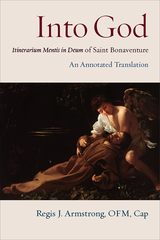
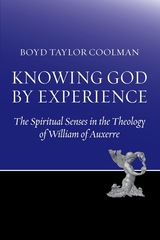
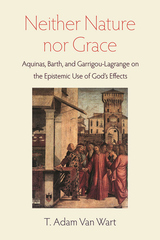
![front cover of On Creation [Quaestiones Disputatae de Potentia Dei, Q. 3]](https://www.bibliovault.org/thumbs/978-0-8132-1798-7-thumb.jpg)
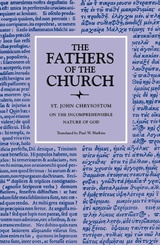
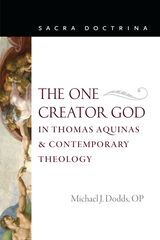
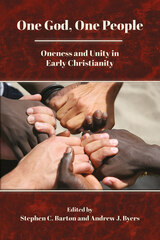
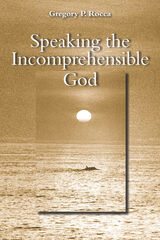
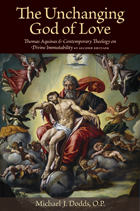
READERS
Browse our collection.
PUBLISHERS
See BiblioVault's publisher services.
STUDENT SERVICES
Files for college accessibility offices.
UChicago Accessibility Resources
home | accessibility | search | about | contact us
BiblioVault ® 2001 - 2024
The University of Chicago Press









